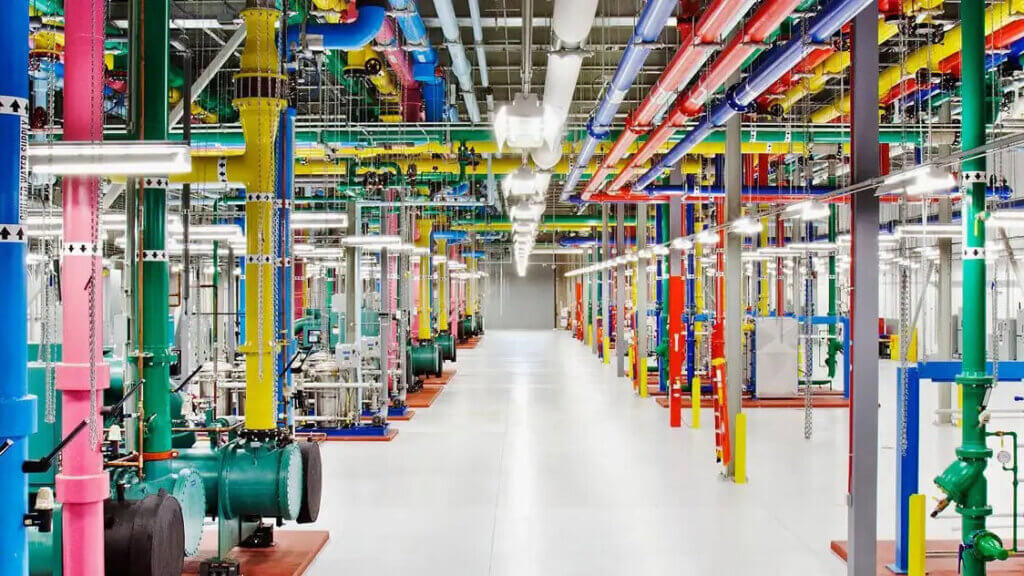Data, often labelled as the “new oil” by business leaders, has emerged as a game-changing asset that is driving innovation and progress across every industry. Much like oil energised the industrial age, data is now powering the engines of progress in a world dominated by AI algorithms. But we also find ourselves at a critical crossroads, where our economic ambitions meet the urgent need for environmental responsibility.
Across every industry, businesses recognise that sustainability is no longer an optional extra but a crucial part of strategy and operations. It’s an area where big data, AI, and machine learning are driving sustainability. But this is not just about cutting carbon footprints and reducing waste. As crucial as those things are, it’s about harnessing the power of data to rethink how we do business, innovate, and create systems that are efficient, profitable and environmentally friendly.
We can gain unprecedented insights into our operations, supply chains, and resource consumption through sophisticated data analytics and AI. With profitability and sustainability in mind, we can use these insights to make better, optimise, and streamline decisions. This movement benefits our environment, boosts bottom lines, enhances brand reputations, and puts companies at the forefront of a global shift.
How Data Empowers Businesses to Meet Government and EU Sustainability Standards
Environmental, Social, and Governance (ESG) standards have become more than just buzzwords. They represent a paradigm shift in how companies operate, establishing benchmarks for risk evaluation and driving competitive advantage, innovation, and financial performance. The key to navigating this complex terrain of sustainable business practices? Data.
Data equips businesses with the ability to assess their operations critically and align them with ESG goals. It provides invaluable insights into the company’s environmental impact, social responsibilities, and governance structures, enabling businesses to identify areas for improvement and enact meaningful change. Moreover, in a world where over 65% of economies have pledged net-zero commitments by 2050, and the EU now requires transparent ESG disclosures, data is the compass guiding companies toward legislative compliance.
Looking forward, ESG scores will increasingly influence investment decisions, shaping the perception of company risk and potential. As such, a robust, data-driven framework is no longer optional but a crucial component of business strategy. This extends beyond company borders – businesses also leverage ESG scores when evaluating suppliers and partners via a responsible procurement framework that ensures sustainability permeates every facet of their operation.
In this new era of business, data acts as the bridge connecting profitability with sustainability. As consumers gravitate towards sustainable and healthy products, companies armed with data can meet this demand while adhering to ESG standards, driving both environmental responsibility and business success. Data enables businesses to strike the delicate balance between generating profits and preserving the planet, ushering in a future where economic growth and sustainability are harmoniously intertwined.
Pioneering Sustainable Change through Data Analytics
Using data platforms to drive sustainability pledges enables organisations to collect, analyse, and visualise data from various sources to make informed decisions. To achieve sustainability goals, businesses must adopt a data-centric approach, translating vast data into actionable insights.
Through robust data tools, businesses can gauge the impact of their operations on the environment, analyse their resource consumption patterns, and formulate strategies to optimise usage, reduce waste, and increase efficiency. This is achieved by integrating AI and advanced analytics, facilitating the generation of comprehensive sustainability reports detailing performance against established benchmarks.
In the realm of sustainability, traceability becomes paramount. BI for sustainability is the transformative shift that enables companies to achieve this. This involves the utilisation of advanced analytics to track the entire lifecycle of products, services, or processes, thereby ensuring environmental, social, and economic impact can be accurately assessed. As such, enterprises are empowered to design and implement sustainable strategies in a more targeted manner. It also promotes transparency and accountability among partners, fostering a shared commitment toward a sustainable future.
Reporting on sustainability goals is critical to any organisation’s ESG efforts. With the integration of data platforms, companies can drive accurate and reliable reporting, thereby enhancing their credibility among stakeholders. Furthermore, these insights help identify areas of high ESG impact and potential for improvement.
The challenge for enterprises is the need to adapt swiftly as sustainability targets, market conditions, and supply chains evolve. This is where the capabilities of AI and automation come to the fore, enabling brands to focus on taking action based on data-driven insights. It is important to note that for a genuinely regenerative organisation, using BI for Sustainability is not merely an option but a necessity in pursuing a sustainable future.
From Healthcare to Retail: How Industries are Embracing Sustainability
Businesses across diverse sectors increasingly recognise the importance of sustainability and actively incorporate it into their operational strategies. The healthcare industry is one example, with companies like Allergan and Biogen leading the way. Allergan, a well-known Botox company, has set ambitious targets to reduce greenhouse gas emissions and waste, receiving recognition from the EPA’s Energy STAR award for its sustainability efforts.
Meanwhile, Biogen is focused on applying sustainability principles to its chemistry, targeting reducing emissions and resource consumption in manufacturing drugs for neurological and haematological diseases. The automotive and technology sectors are also making significant strides towards sustainability. For example, BMW revealed its commitment to reducing vehicle emissions by introducing more environmentally friendly hybrid and electric models.
Bosch, a prominent name in the technology and appliance industry, achieved climate-neutral status in 2020 and continues prioritising sustainable water usage and energy-efficient materials in its operations. Additionally, Intel is heavily investing in water restoration projects and renewable energy sources, reflecting the tech industry’s broader shift toward sustainability.
The journey towards sustainability is not restricted to high-tech and manufacturing industries but extends to consumer goods and retail. Estée Lauder, a cosmetics industry giant, strongly advocates for green energy and waste reduction. Retail giants like Ikea are setting exemplary standards by committing to climate positivity, recycling, and supporting biodiversity. Similarly, Patagonia, the famous outdoor apparel brand, employs recycled materials in its products and financially supports environmental organisations. Even. Unilever, the parent company to many popular brands, is striving for net-zero emissions by 2039 and a deforestation-free supply chain by 2023.
AI and Green Tech: An Unlikely Pair Fuelling a Sustainable Future
AI’s potential to enhance efficiency and user experiences is considerable. However, its extensive reliance on data centres, which account for over 1% of global electricity consumption, prompts environmental concerns. AI models’ ever-growing data needs are poised to substantially escalate energy demand, potentially undermining sustainability efforts and accelerating carbon emissions. In response, the concept of Green AI has come to the fore, advocating a synergistic approach to technology and sustainability.
Major tech companies, in their pursuit of carbon neutrality by 2030, are harnessing the capabilities of AI, indicative of this new wave of thought. Notably, AI’s contribution to sustainability extends beyond the tech sector. Google, for instance, leveraged AI to enhance energy efficiency in its data centres by 40%. In agriculture, AI’s predictive capabilities enable optimised production and effective environmental condition management. It also bolsters renewable energy supply management and enhances the sustainability and efficiency of supply chains.

However, this promising narrative hinges on a critical caveat: AI must be inherently sustainable. Critics rightly argue that our efforts will fall short unless AI is designed with sustainability in mind. While the leaps in AI innovation are inspiring, the energy efficiency of its infrastructure remains a critical concern. Therefore, as we envision a greener future, we must commit to viewing Green AI from dual perspectives: as a catalyst for broader sustainability efforts and as a concept requiring its sustainable evolution.
The challenge involves innovative, green-focused strategies and a commitment to ceaseless improvement. Ultimately, the success of a sustainable future is intricately linked to the development of a genuinely green AI that benefits both the economy and the environment.
How Data-Driven Sustainability Creates a Competitive Advantage
Data-driven sustainability is already creating new avenues for competitive advantage. By integrating sustainable practices and data analytics into their core business strategy, companies can differentiate themselves from rivals and attract conscious consumers and investors. It is becoming increasingly clear that sustainable practices resonate with today’s consumers who, empowered by digital technologies, demand transparency, and ethical conduct from companies.
Firms that leverage data to understand their environmental impact and communicate these efforts transparently are more likely to earn consumer trust and loyalty. Data-driven sustainability fosters innovation, unlocking new products, services, and business model opportunities.
By leveraging AI and big data, companies can develop sustainable alternatives to existing products, optimise logistics for lower carbon emissions, or devise energy-efficient manufacturing processes. Such innovative practices reduce a company’s ecological footprint and drive economic value, resulting in a win-win scenario.
Finally, regulatory bodies worldwide are increasingly demanding businesses comply with stringent environmental norms, making sustainability a strategic necessity rather than a mere choice. Data-driven sustainability helps companies proactively address these regulations, avoid potential fines, and even influence policymaking. As we march into a future where data is king and sustainability is queen, businesses that embrace data-driven sustainability will be the ones that stand out, thrive, and drive the change we need to see in the world.






